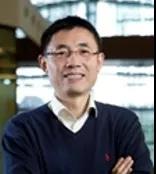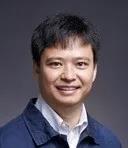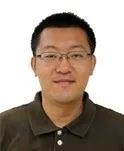CCF广州珠江论坛丨视觉计算国际学术线上论坛(预告)
计算机视觉是当前人工智能研究和应用最活跃的领域, 聚焦计算机视觉理论和应用前沿,本次论坛特邀请活跃在该领域的四位国际学者:美国纽约州立大学石溪分校凌海滨教授(Empire Innovation教授)、悉尼大学张健副教授(多媒体数据分析实验室主任)、美国密苏里大学李竹副教授(NSFI/UCRC 中心主任)、新加坡南洋理工大学王迪博士(NTU-UBC联合老年人活跃生活卓越研究中心高级研究员),做前沿学术报告。四位学者的报告将围绕着视觉计算相关热点话题展开,非常值得期待。我们热忱欢迎CCF的各位会员参加本次专题论坛活动。
参会方式
1、扫码报名加入会议:
会议 ID:682 743 194
2、会员免费
3、非会员200元
4、扫码加入CCF
5、联系人:黄书强,邮箱:hsq@jnu.edu.cn。
论坛流程
(1)19:30-19:40,会议暖场,介绍本次论坛主题和嘉宾
(2)19:40-20:10,张健《网络监督的细粒度视觉识别》,30分钟,另提问交流5分钟
(3)20:15-20:45,凌海滨《图匹配与应用》,30分钟,另提问交流5分钟
(4)20:50-21:20,李竹《点云压缩与通信》,30分钟,另提问交流5分钟
(5)21:25-21:55,王迪《以人为本的3H护理AI》,30分钟,另提问交流5分钟
(6)22:00,活动总结
论坛执行主席
许勇(华南理工大学教授,CCF杰出会员,CCF广州分部主席)
黄书强(暨南大学教授,CCF杰出会员,CCF广州分部秘书长)
主承办
主办:CCF
承办:CCF广州分部
讲者简介
Professor Jian Zhang
(张健)
报告1:Webly Supervised Fine-Grained Visual Recognition(网络监督的细粒度视觉识别)
Abstract: Labeling objects at the subordinate level typically requires expert knowledge, which is not always available from a random annotator. Accordingly, learning directly from web images for fine-grained visual classification (FGVC) has attracted broad attention. However, the existence of noise in web images is a huge obstacle for training robust deep neural networks. To this end, we propose a novel approach to remove irrelevant samples from the real-world web images during training, and only utilize useful images for updating the networks. Thus, our network can alleviate the harmful effects caused by irrelevant noisy web images to achieve better performance.
嘉宾简介: Dr. Jian Zhang received the Ph.D. degree in electrical engineering from the University of New South Wales (UNSW), Sydney, Australia, in 1999. From 1997 to 2003, he was with the Visual Information Processing Laboratory, Motorola Labs, Sydney, as a Senior Research Engineer, and later became a Principal Research Engineer and a Foundation Manager with the Visual Communications Research Team. From 2004 to July 2011, he was a Principal Researcher and a Project Leader with Data61/NICTA, Sydney. He is currently an Associate Professor and Director of Multimedia Data Analytics Lab with the Global Big Data Technologies Centre, School of Electrical & Data Engineering, Faculty of engineering and Information Technology, University of Technology Sydney, Sydney. Prof Zhang’s research interests include multimedia signal processing, computer vision, pattern recognition, visual information mining, human-computer interaction and intelligent video surveillance systems. Prof Zhang has co-authored more than 150 paper publications, book chapters, patents and technical reports from his research output, he was the co-author of eight granted US and China patents. Dr. Zhang is an IEEE Senior Member and Associated Editor, IEEE Transactions on Multimedia. He was Associated Editor, IEEE Transactions on Circuits and Systems for Video Technology (T-CSVT) from 2006 – 2015, He chaired a number of IEEE International conferences including Technical Program Chair of 2008 IEEE Multimedia Signal Processing Workshop, Leading General Co-Chair, of 2012 International Conference on Multimedia and Expo (ICME) in Melbourne Australia, of 2019 Technical Program Co-Chair of 2014 IEEE International Conference on Visual Communications and Image Processing, Technical Program Co-Chair of IEEE ICME 2020 in London and Leading General Chair of 2019 IEEE International Conference on Visual Communications and Image Processing in Sydney Australia.
Professor Haibin Ling
(凌海滨)
报告2:Graph Matching and Application(图匹配与应用)
Abstract: As a fundamental problem in computer vision and machine learning, graph matching aims find correspondences between sets of entities with consideration of the relations among them. In this talk we will introduce our recent advances in both graph matching algorithms and applications. On the algorithm side, we will describe our new solution that applies graph neural network to the combinatorial assignment process in graph matching, as well as our recent improvement of the classic path following algorithms and the multi-dimensional assignment problem. On the application side, we will focus on the use of graph matching for various visual tracking problems in medical image analysis (curvilinear structure tracking), augmented reality (planar and deformable surface reconstruction) and surveillance (multi-target tracking).
嘉宾简介: Haibin Ling received the B.S. and M.S. degrees from Peking University in 1997 and 2000, respectively, and the Ph.D. degree from the University of Maryland, College Park, in 2006. From 2000 to 2001, he was an assistant researcher at Microsoft Research Asia. From 2006 to 2007, he worked as a postdoctoral scientist at the University of California Los Angeles. After that, he joined Siemens Corporate Research as a research scientist. From 2008 to 2019, he was a faculty member with Temple University. In fall 2019, he joined the Stony Brook University (SUNY) as an Empire Innovation Professor. His research interests include computer vision, augmented reality, medical image analysis, and human computer interaction. He received the Best Student Paper Award at the ACM Symposium on User Interface Software and Technology (UIST, 2003), the NSF CAREER Award (2014), Yahoo Faculty Research Award (2019) and Amazon AWS Machine Learning Research Award (2019). He serves as Associate Editors for several journals including IEEE Trans. on Pattern Analysis and Machine Intelligence (PAMI), Pattern Recognition (PR), and Computer Vision and Image Understanding (CVIU). He has served as Area Chairs various times for CVPR and ECCV.
Professor Zhu Li
(李竹)
报告3:Point Cloud Compression and Communication(点云压缩与通信)
Abstract: Point cloud data arises from depth sensing and capturing for both auto driving/navigation/smart city, as well as immersive content capture and VR/AR playback applications. Recent advances in sensor technology and algorithms, especially 77Ghz MIMO radar systems, and high resolution structured light in conjunction with very high resolution rgb camera arrays, have made point cloud capture getting closer to real world applications. In this talk I will overview the related research at the Multimedia Computing & Communication Lab at UMKC, discuss the main technical challenges and solutions in point cloud capture, compression and communication for auto driving and smart city applications, especially the scalable geometry compression, video based point cloud compression (VPCC) problems, and our recent results in advanced 3D motion model, occupancy map driven rate-distortion optimization and multi-attribute compression that significantly advanced the state of art in video based PCC.
嘉宾简介: Zhu Li is an associated professor with the Dept of CSEE, University of Missouri, Kansas City, USA, directs the NSF I/UCRC Center for Big Learning at UMKC. He received his PhD from Electrical & Computer Engineering from Northwestern University in 2004. He was Sr. Staff Researcher/Sr. Manager with Samsung Research America's Multimedia Core Standards Research Lab in Dallas, from 2012-2015, Sr. Staff Researcher at FutureWei, from 2010-12, Assistant Professor with the Dept of Computing, The HongKong Polytechnic University from 2008 to 2010, and a Principal Staff Research Engineer with the Multimedia Research Lab (MRL), Motorola Labs, Schaumburg, Illinois, from 2000 to 2008. His research interests include image/video analysis, compression, and communication and associated optimization and machine learning problems. He has 46 issued or pending patents, 100+ publications in book chapters, journals, conference proceedings and standards contributions in these areas. He is the Associate Editor-in-Chief for IEEE Trans on Circuits & System for Video Tech, 2020~, and served and serving as Associated Editor for IEEE Trans on Image Processing (2019~), IEEE Trans on Multimedia (2015-18), and IEEE Trans on Circuits & System for Video Tech (2016~19). He received a Best Paper Award from IEEE Int'l Conf on Multimedia & Expo (ICME) at Toronto, 2006, and a Best Paper Award from IEEE Int'l Conf on Image Processing (ICIP) at San Antonio, 2007.
Doctor Di Wang
(王迪)
报告4: Human-centered AI for 3H Care(以人为本的3H护理AI)
Abstract: As a consequence of global population aging, the ratio of the number of healthcare professionals to the number of people in need of care is decreasing rapidly. A major challenge is that chronic diseases will consume an increasing fraction of care resources. Health problems related to hyperglycemia, hypertension, and hyperlipidemia (3H) affect a large segment of the population. For example, one in four Singaporeans suffer from 3H. In this talk, I will share some of the on-going research work at the NTU LILY Research Centre to address 3H challenges. We believe that there is great potential in the application of human-centered AI technologies for early detection and intervention measures which will significantly reduce the incidence of 3H within the whole population. We plan a large-scale study to assess the effectiveness and cost of our approaches.
嘉宾简介: Dr. Di Wang received his Bachelor degree in Computer Engineering and his Ph.D. degree in Computer Science from School of Computer Science and Engineering, Nanyang Technological University, Singapore, in 2003 and 2014, respectively. Prior to joining Nanyang Technological University, Singapore, he had been working in various universities and companies as teaching assistant, project officer, and data analyst. He is currently working as the Senior Research Fellow and the Research Manager in the Joint NTU-UBC Research Centre of Excellence in Active Living for the Elderly (LILY), Nanyang Technological University, Singapore. Dr Wang has published over forty technical papers in major journals and conferences of his fields. His research interests include computational neuroscience, computational intelligence, autonomous agents, affective computing, ubiquitous computing, etc. Dr Wang is an IEEE Senior Member. He has served as reviewer of major journals and various chair positions and program committee members of major conferences of his fields. In 2019, Dr Wang received a Best Paper Award at the IEEE International Conference on Agents (ICA).
CCF已在如下32个城市建立会员活动中心
(按照建立时间先后为序)
深圳 天津 杭州 武汉 大连 广州 合肥 郑州 太原 哈尔滨 西安长春 济南 南京 成都 重庆 长沙 上海 苏州 兰州 沈阳 绵阳 无锡 宁波 常州 青岛 石家庄 福州 西宁 南昌 南宁 昆明
CCF会员可免费参加分部90%以上的活动。
 返回首页
返回首页










